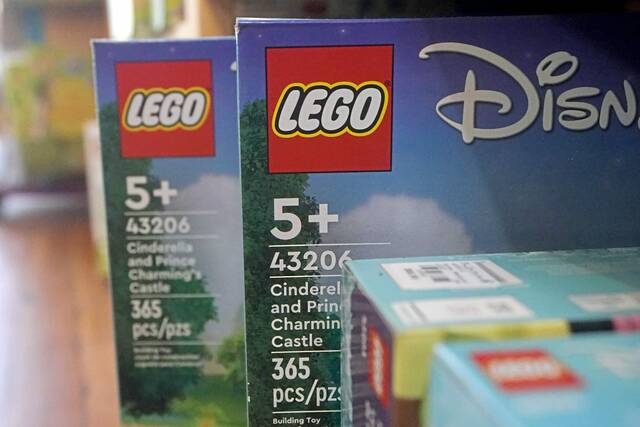After more than a year of debate, Hempfield Area School Board is set to vote on new book selection and challenge regulations for the district’s libraries.
The draft regulations, which were discussed by board members in January, would set guidelines for preventing sexually explicit content from entering or staying in the school library and define the process that addresses challenges to library or classroom book materials.
The district is expected to vote Monday on whether to begin a 30-day review of the regulations. A month later, the board is expected to vote on implementing the policies, according to Superintendent Tammy Wolicki.
“We all want what’s best for children, and I think everyone is looking at what language and guidelines are being included in these documents for the outcome that they feel is best,” Wolicki said. “For us, we just have to give careful consideration of not only what’s written, but also the implementation. Ultimately, it is the implementation that is going to tell us whether or not what we have is effective in achieving our goal.”
Content of the policies
The “Selection of Resource Materials” policy sets rules for what type of material would be allowed in Hempfield libraries.
Materials would not be permitted in elementary school libraries if they contain visual or explicit written depictions of sexual acts or visual depictions of genitalia or female breasts. Nonexplicit written descriptions of sexual acts would be permitted only for the purposes of “teaching students personal hygiene or to avoid and report molestation.”
At the secondary level, which includes middle and high school, materials with visual depictions of sex acts would never be permitted. Visual depictions of genitalia or female breasts would be permitted only in cases of “diagrams for educating about anatomy for science and health instruction, breastfeeding or works of art such as classical art.”
Explicit written descriptions of sexual acts would be permitted only in cases of “literature that has serious literary, artistic, political, educational or scientific value such as classical literature.”
Previously, the elementary, middle and high school levels had been considered separate categories. The new draft combines the middle and high school level criteria into the secondary level.
Book challenges
The “Request for Reevaluation of Resource Materials” policy sets procedures for what the district will do if a book or other material’s appropriateness is called into question.
Two routes are possible if a book is challenged. First, an informal review can be conducted, in which the community member challenging a book meets with a librarian, teacher or other appropriate staff member and details their objections.
The school staff person will discuss the value of the questioned book or material and its educational purpose. If, after that, the complainant isn’t satisfied, they are able to file a formal complaint within 10 business days of receiving the response. The challenged material remains in circulation pending the final outcome of the challenge.
During a formal challenge, which has been conducted only twice in the district, a committee will be formed that includes at least one librarian, one teacher, one school administrator, two community members or parents that are not employed by the district, and one student (if the challenge is at the secondary level).
The community members and students will be chosen from a pool of volunteers and may not be the community member that raised the challenge. The person who raised the challenge is allowed to attend the meetings to discuss their perspective but will not have a vote.
According to high school librarian Nicky Owens, the committee members must read the book in its entirety before the meeting.
“The committee then meets to discuss the book and our thoughts on whether it should remain in the collection or be removed,” she said in an email. “We are asked to set aside personal beliefs and evaluate the text objectively on the entire book, not merely excerpts or removed passages.”
Owens noted that when the formal review committee met last year to discuss two titles, the committee members voted, almost unanimously, to keep the books in the high school library collection.
Changes from previous versions
Since the drafts’ original publication in January, the district’s policy committee removed or tweaked a few portions to streamline the document, Wolicki said.
Definitions for the terms “sexual content” and “ethnic intimidation” were referred to the definitions already listed in the Pennsylvania school code instead of being included directly in the document.
Some proposed portions were changed after reexamining their implementation. A requirement for books to be placed on a 60-day review before purchase was removed because it would be too impractical, Wolicki noted.
“If I’m a teacher and I want to use (an item) for current events, to have to put it on review for 60 days, it’s no longer a current event,” she said, adding that curriculum materials such as textbooks will still be put on review.
A previous draft cited specific book-reviewing websites that could be used to supplement the review, which were removed to make sure the policy would still be relevant if those sites were not available in the future. The draft also cited checking whether the book has been challenged at other districts, but that portion was removed because that may not be possible for all books, Wolicki said.
“For a book to be challenged, it’s typically been already available for at least six months or longer,” she said. “For someone else to have taken it through a review process, for us to even include that language, it gives the false perception that they’re able to look at a list. The book wouldn’t realistically be on a list.”
Owens does not expect her role as librarian to change significantly if the new policies are approved.
“I already make very careful decisions as to what books are selected for the high school library collection, so that part of my job will remain the same,” she said. “I read many professional reviews and take into consideration student interest as well as relevance to our curriculum. Under the new policy, I would continue to research each title carefully. I will also continue to share each title with the assistant superintendent.”
The effectiveness of the policy will be measured by its implementation, Wolicki said.
“As I look at this, I think we’re going to try to fit that Goldilocks principle of what is just the right fit,” Wolicki said. “We will still have the reevaluation process. Even in buying a library book following the guidelines, there still could be content. And there will always be differences of opinion.”








